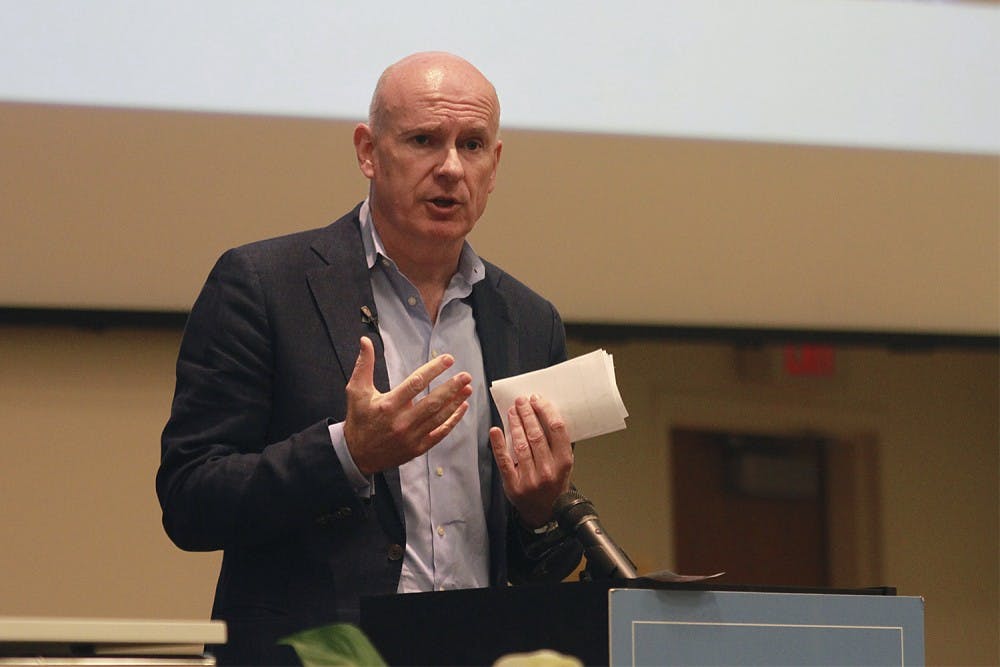Baker, the editor-in-chief of The Wall Street Journal, spoke in Carroll Hall Monday night as the guest lecturer for the 2014 Nelson Benton Lecture.
“Business journalism faces a fundamental and existential crisis like all journalists — the model of business journalism has been fundamentally destroyed,” he said.
The lecture series was started in 1991 by Joe Benton, Nelson Benton’s only son, in honor of his father’s extensive career as a CBS News correspondent.
Susan King, dean of the School of Journalism and Mass Communication, introduced Baker.
“Nelson Benton would have loved that Gerard is doing this, because Baker is proof that a TV guy can run a news organization, and even if you move from your home turf where you are most comfortable, you never lose your accent,” King said.
Baker focused his lecture on the future of journalism — a question that has dominated the minds of those interested in the field in the midst of the digital revolution in the industry.
“Despite what some of you may have read, I believe business journalism has a very strong future, but I think it will be different than what we have seen over the past 100 years or so,” he said.
In the past 25 years, business journalism has grown in relevance, Baker said.



